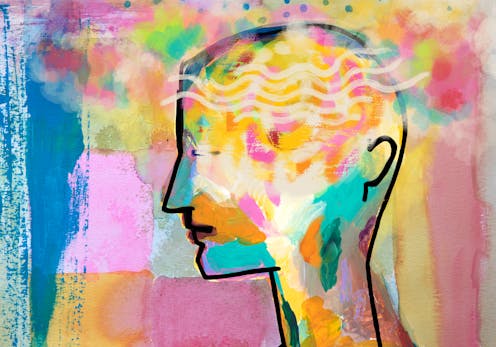Introduction: Understanding Intellectual Disability Services in Australia
Intellectual disability is a term used to describe a range of cognitive impairments that affect a person’s intellectual functioning and adaptive behavior. It is a lifelong condition that can significantly impact an individual’s ability to learn, communicate, and perform everyday tasks. In Australia, there are various services and supports available to assist individuals with intellectual disabilities in leading fulfilling lives and participating in their communities.
Intellectual disability services in Australia aim to provide individuals with the necessary support and resources to maximize their potential and enhance their quality of life. These services encompass a wide range of areas, including education, employment, housing, healthcare, and social inclusion. The goal is to promote independence, inclusion, and empowerment for people with intellectual disabilities.
The Early Days: Stigma and Institutionalization
In the early days of intellectual disability services in Australia, there was a lack of understanding and acceptance towards individuals with intellectual disabilities. They were often stigmatized and faced discrimination in various aspects of their lives. This led to the institutionalization of people with intellectual disabilities, where they were placed in large, segregated institutions away from the rest of society.
The institutionalization of individuals with intellectual disabilities had a profound impact on both the individuals themselves and their families. People with intellectual disabilities were often subjected to neglect, abuse, and isolation within these institutions. Families were also affected, as they were often pressured to place their loved ones in these institutions due to societal expectations and limited support services.
The Deinstitutionalization Movement: A Turning Point
The deinstitutionalization movement emerged in the late 20th century as a response to the inhumane conditions and treatment experienced by individuals with intellectual disabilities in institutions. This movement advocated for the closure of large institutions and the transition to community-based services that would provide individuals with intellectual disabilities with the opportunity to live in the community and receive support tailored to their needs.
The closure of large institutions marked a turning point in the provision of intellectual disability services in Australia. It allowed individuals with intellectual disabilities to live in more inclusive environments and have greater control over their lives. Community-based services, such as group homes, supported employment programs, and day programs, were established to provide individuals with the necessary support to live independently and participate in their communities.
While deinstitutionalization brought about positive outcomes for many individuals with intellectual disabilities, it also presented challenges. The transition from institutional care to community-based services required careful planning and coordination to ensure that individuals received the appropriate support and resources. Additionally, the closure of institutions resulted in the loss of jobs for staff members, which posed a challenge in terms of workforce transition and retraining.
The Rise of Community-Based Services: A New Era of Support
The rise of community-based services marked a new era of support for individuals with intellectual disabilities in Australia. These services aim to provide individuals with the necessary support to live independently, participate in their communities, and achieve their goals. Community-based services offer a range of supports, including accommodation, employment assistance, skill development, and social inclusion activities.
One of the key benefits of community-based services is the opportunity for individuals with intellectual disabilities to live in inclusive environments and be active members of their communities. Community-based services promote social inclusion and provide individuals with the necessary support to develop and maintain relationships, access education and employment opportunities, and participate in recreational activities.
However, community-based services also face challenges. There is often a lack of funding and resources, which can limit the availability and quality of services. Additionally, there may be a lack of coordination and collaboration between different service providers, which can result in fragmented and inconsistent support for individuals with intellectual disabilities.
The National Disability Insurance Scheme (NDIS): A Game-Changer for People with Intellectual Disabilities
The National Disability Insurance Scheme (NDIS) is a government-funded program that was introduced in Australia in 2013. It is a significant milestone in the provision of intellectual disability services, as it aims to provide individuals with disabilities, including those with intellectual disabilities, with greater choice and control over the supports they receive.
The NDIS has had a significant impact on intellectual disability services in Australia. It has shifted the focus from a one-size-fits-all approach to a person-centered approach, where individuals with intellectual disabilities have the opportunity to tailor their supports to their specific needs and goals. The NDIS provides funding for a range of supports, including accommodation, employment assistance, therapy services, and social inclusion activities.
While the NDIS has brought about many positive changes, it has also presented challenges. The rollout of the NDIS has been complex and has faced issues such as delays in accessing services, difficulties in navigating the system, and a lack of available service providers in some areas. Additionally, there have been concerns about the adequacy of funding and the sustainability of the scheme in the long term.
The Role of Families and Carers in Intellectual Disability Services
Families and carers play a crucial role in the provision of intellectual disability services in Australia. They provide support, advocacy, and care for individuals with intellectual disabilities, often taking on significant responsibilities and making sacrifices to ensure the well-being and inclusion of their loved ones.
The involvement of families and carers in intellectual disability services is essential for several reasons. Firstly, families and carers have a deep understanding of the needs and preferences of individuals with intellectual disabilities, which can inform the development and delivery of appropriate supports. Secondly, families and carers provide emotional support and a sense of belonging for individuals with intellectual disabilities, which is crucial for their overall well-being. Finally, families and carers are often the primary advocates for individuals with intellectual disabilities, fighting for their rights and ensuring that their voices are heard.
However, families and carers also face challenges in their role. They may experience emotional and physical exhaustion, financial strain, and social isolation. The demands of caring for a person with an intellectual disability can be overwhelming, and families and carers may struggle to find the support and respite they need. It is essential that adequate support and resources are available to families and carers to ensure their well-being and enable them to continue providing the best possible care for their loved ones.
The Importance of Advocacy in Shaping Intellectual Disability Services
Advocacy plays a crucial role in shaping intellectual disability services in Australia. Advocacy involves promoting the rights and interests of individuals with intellectual disabilities and ensuring that they have access to the supports and resources they need to live fulfilling lives and participate in their communities.
Advocacy can take many forms, including individual advocacy, where advocates work directly with individuals with intellectual disabilities to support them in navigating systems and accessing services; systemic advocacy, where advocates work to influence policies and practices at a broader level to improve the lives of individuals with intellectual disabilities; and self-advocacy, where individuals with intellectual disabilities advocate for themselves and their rights.
There have been many successful advocacy campaigns in Australia that have led to positive changes in intellectual disability services. These campaigns have focused on issues such as inclusive education, employment opportunities, accessible housing, and the rights of individuals with intellectual disabilities to make decisions about their own lives. Advocacy has been instrumental in challenging stigma and discrimination, raising awareness, and driving policy and legislative changes.
However, advocacy groups also face challenges in their work. They often operate with limited resources and funding, which can limit their capacity to effectively advocate for change. Additionally, there may be a lack of understanding and support from the broader community and policymakers, which can hinder advocacy efforts. It is crucial that advocacy groups are supported and empowered to continue their important work in promoting the rights and inclusion of individuals with intellectual disabilities.
The Challenges of Accessing and Delivering Quality Services
Accessing quality intellectual disability services can be challenging for individuals with intellectual disabilities and their families. There are various barriers that can hinder access, including limited availability of services, long waiting lists, geographical barriers, and a lack of culturally appropriate and accessible services.
Service providers also face challenges in delivering quality services. There may be a lack of funding and resources, which can limit the availability and scope of services. Additionally, there may be a lack of coordination and collaboration between different service providers, resulting in fragmented and inconsistent support for individuals with intellectual disabilities. Service providers also need to ensure that their staff members have the necessary skills, knowledge, and attitudes to provide effective support to individuals with intellectual disabilities.
Strategies for improving access to and delivery of quality intellectual disability services include increasing funding and resources, improving coordination and collaboration between service providers, investing in staff training and development, and promoting person-centered approaches that prioritize the needs and goals of individuals with intellectual disabilities.
The Future of Intellectual Disability Services in Australia: Opportunities and Challenges
The future of intellectual disability services in Australia presents both opportunities and challenges. There are emerging trends and innovations that have the potential to improve the lives of individuals with intellectual disabilities, such as the use of technology to enhance communication and independence, the development of inclusive education and employment programs, and the promotion of self-advocacy and empowerment.
However, there are also challenges that need to be addressed. These include the need for increased funding and resources, the importance of ensuring that services are accessible and inclusive for individuals from diverse backgrounds, the need for ongoing training and professional development for staff members, and the importance of addressing systemic barriers and discrimination.
Conclusion: Celebrating Progress and Continuing the Journey towards Inclusion and Empowerment
In conclusion, intellectual disability services in Australia have come a long way in promoting the inclusion and empowerment of individuals with intellectual disabilities. The transition from institutional care to community-based services, the introduction of the NDIS, the involvement of families and carers, and the advocacy efforts of individuals and organizations have all contributed to positive changes in the lives of individuals with intellectual disabilities.
However, there is still work to be done. It is important to celebrate the progress that has been made and acknowledge the achievements of individuals with intellectual disabilities, their families, and the service providers and advocates who support them. At the same time, it is crucial to continue the journey towards greater inclusion and empowerment, addressing the challenges that exist and working towards a society that values and supports the rights and well-being of all individuals, regardless of their abilities.
Find out how Torongo Therapyplus can help you with your needs. Get in touch with us at smile@torongo.life, or call us on 02 8809 9965.






























